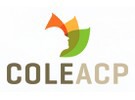On a demanding European market affected since March by COVID-19, following Côte d’Ivoire at the beginning of the campaign, Mali and Senegal also show very encouraging results, reflecting the efforts of the entire sector.
In recent years, there have been numerous and recurrent interceptions of mangoes imported into Europe due to the presence of fruit fly. With the European Union’s revision of its phytosanitary regulations, a new European directive came into force on 1 September 2019, imposing additional requirements on all countries exporting mangoes to the EU.
As part of the intra-ACP Fit For Market SPS programme, funded under the 11th European Development Fund, ColeACP is supporting ACP and particularly West African National Plant Protection Organisations (NPPOs) in complying with these stricter phytosanitary measures. It is the responsibility of the NPPOs to respond to the phytosanitary regulations by drawing up and submitting to the EU a national action plan to limit the phytosanitary risk linked to the import of mangoes into the EU, prior to any mango exports.
ColeACP’s activities since the announcement of this new regulation have been numerous and ongoing: the stakes were high since without a national response to the EU regulation, no mangoes from third countries in general, and from West Africa in particular, could have been exported to the EU during the 2020 campaign. The socio-economic impact of a halt to mango exports would have been extremely negative on the thousands of workers involved in the West African sector – mainly young and female – as well as on producers, since production relies on numerous small-scale orchards.
ColeACP quickly informed ACP stakeholders and partners of the new regulations and their possible impacts on the value chains. Specific support was then provided: development of technical support, training of local experts, and assistance to national working groups bringing together public and private stakeholders to develop, validate and implement national strategies for surveillance, control and management of fruit flies, summarised in the form of dossiers to be sent to the EU for validation.
This sustained effort by all parties involved has paid off. A first success was the validation by the EU of the mango dossiers from Burkina Faso, Côte d’Ivoire, Gambia, Guinea, Mali and Senegal, presenting the national system approach adopted to reduce the presence of fruit fly on mangoes exported to the EU.
Only one lot intercepted during the Mali campaign
One example of success is the historically low number of interceptions of Malian mango lots in Europe during the 2020 campaign: only one lot was intercepted. This represents a remarkable improvement compared with previous years. We would like to congratulate all our partners in Mali for this success: the National Directorate of Agriculture, the National Plant Protection Organisation, the Interprofession de la filière mangue du Mali, along with the entire private sector, local experts, and other programmes that have contributed to this result. More than 12,500 tonnes were exported from Mali this year, including nearly 3,000 tonnes by road.
Our support to the relevant authorities will continue to maintain this situation and support them in the face of new challenges they may face in the future.
Like Mali, Côte d’Ivoire had very few fruit fly-related notifications on entry to the EU market: only four compared with 15 last year.
In Senegal, the initial signs are also positive in terms of the quality of products that have been marketed in the EU: the campaign is currently ongoing, and there have so far been no interceptions linked to fruit flies.
Following on from the successful beginning of the campaign in April by Côte d’Ivoire, and the quality of West African mango this year, recognised by buyers as a very sweet, fragrant mango with a nice exterior colour and uniform at maturity, the 2020 assessment looks very positive.
These results are due to the efforts of the European and African private sector working together with the competent national authorities, mobilised this year particularly around the control of quality throughout the sector, and of successful operational agility in the global context of COVID-19.
 For more information:
For more information:
ColeACP
Tel: +33 1 41800210
www.eservices.coleacp.org/en
